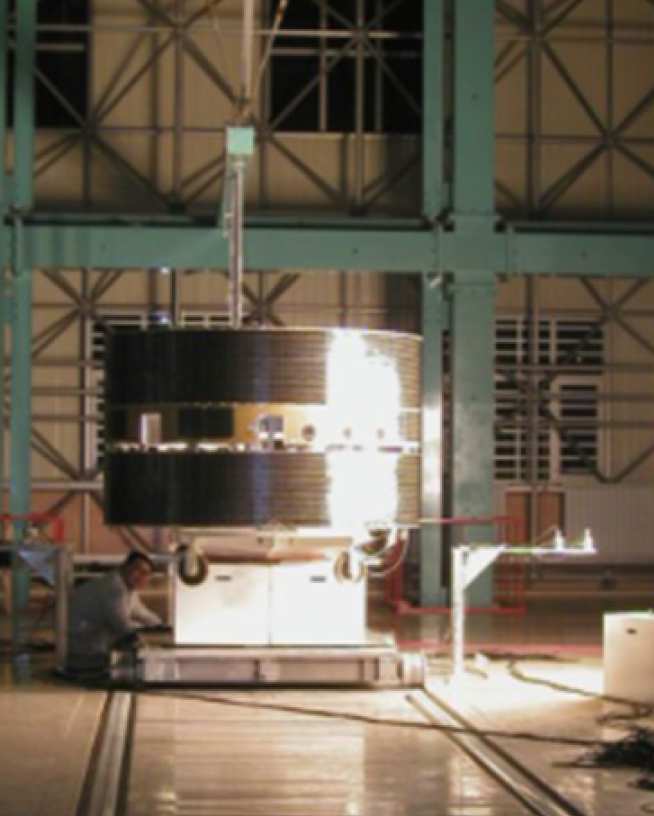Imperial College Double Star Home Page

Double Star is a joint European Space Agency (ESA)/Chinese mission to explore the Earth's magnetosphere.
Mission Summary
The two Double Star satellites, called TC1 and TC2 (Tan-Ce is Chinese for 'Explorer'), were designed, developed and launched by the China National Space Administration. They orbit the Earth in equatorial and polar orbits, enabling simultaneous measurements of the Earth's magnetosphere at complementary locations. The Double Star satellites carry a combination of Chinese instruments and European instruments of identical (or very similar) design to those flying on the four ESA Cluster satellites. Cluster and Double Star, operating simultaneously, formed for the first time a mini-constellation of satellites making 6-point simultaneous measurements in the near Earth environment. The mission formally ended in October 2007 when the TC-1 spacecraft re-entered the Earth's atmosphere (an unavoidable consequence of its equatorial orbit), however the TC-2 spacecraft and payload remains operational.
Facts:
- Launch: 29 December 2003 (TC1) and 25 July 2004 (TC2)
- Spacecraft Orbits: TC1: equatorial elliptical orbit of 570 - 79000 km altitude with a 28° inclination
TC2: polar elliptical orbit of 560 - 38000 km altitude - Imperial College mission involvement: Chris Carr - Principal Investigator, FGM TC1, Co-I FGM TC2
Co-Iinvestigators: Andre Balogh, Patrick Brown, Elizabeth Lucek, Tim Horbury, Peter Cargill. Guest Investigator: Steve Schwartz - Imperial College instrument: The Space Magnetometer Laboratory provided hardware for the 3 axis fluxgate magnetometer on each satellite.
- Mission Lifetime: Nominal Mission: Launch to June 2005
Mission Extension: to October 2007 - Data products: 3-axis magnetic field data (22 vectors per second)
- Current Status: TC-1: Spacecraft re-entered the Earth's atmosphere in October 2007 and was destroyed
TC-2: Spacecraft and payload continues to operate though financial support from ESA/STFC has been discontinued
Further Information about DoubleStar:
External Links:
Useful Links
DoubleStar Links: